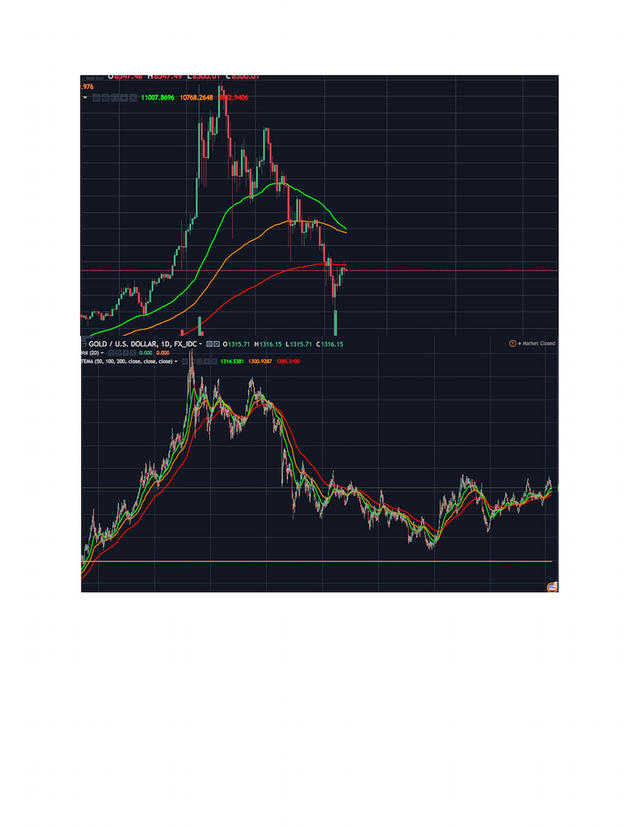BITCOIN/GOLD MARKET!!!

There’s been plenty of commentary on whether Bitcoin and gold have any correlation or whether Bitcoin is the new gold.
With the global equity markets currently in correction mode, the moves in Bitcoin certainly address the 2nd of the two debates, with Bitcoin’s slide to sub-$7,000 levels seeing a little respite in spite of the equity market slide that is continuing into the second week.
The slide in Bitcoin prices largely affirms that Bitcoin is not the new gold and will unlikely ever take the safe haven mantle away from gold that offers investors a physical asset that can be bought and sold in even the most doomsday scenario.
As is the case with any asset class and any correlation analysis, the time frame over which the analysis is carried out will have an influence on the correlation results.
If we consider the daily data points from the 30th November 2017 to 2nd February 2018, which not only factors in Bitcoin’s rally to a record closing high $19,114.20 but also its collapse to a February 2nd $8,830.75, the correlation coefficient stands at -0.68.
When looking at a correlation coefficient, a positive correlation of 1 would indicate that the pair is perfectly correlated, with a correlation coefficient of 0 indicating that there is no correlation, while a correlation of -1 reflects a perfect negative correlation.
Market conditions through the period analyzed ware particularly different for the respective asset classes, with the recent equity market rout providing strong support for gold, whilst Bitcoin experienced a mass sell off since the 2nd week of January.
Looking at the pre-2017 Bitcoin boom, other periods have shown significantly less correlation, positive or negative, with correlation coefficients ranging from 0.31 to -0.48. The extreme end of the ranges are certainly more suggestive of a correlation, but as with the November 2017 to February 2018 period, some correlation is to be expected based on coincidence rather than an actual relationship between the two.
Interestingly, the negative correlations seen in recent years, with the correlation coefficient having turned negative in 2014, would add further support to the argument that Bitcoin is not a safe haven and on this basis shouldn’t behave in a similar trend to gold during periods of market stress.
Bitcoin’s rise to record levels in 2017 came at a time when gold prices ware also on the rise, but the reasons behind the gains were vastly different. The Bitcoin rally was driven by speculative investors, enjoying an unregulated trading environment that has since come crashing down. With the equity markets in free fall over the last week, even Bitcoin investors will have been looking towards gold as somewhere to park the cash, which will likely drive the negative correlation closer to -1 in the coming days before moving back to sub -0.5 levels as the markets normalize.
As is the case with any analysis, the data points chosen ultimately decide the outcome of a debate. A number of periods over which the correlation coefficients are calculated to suggest that any correlation is by chance at best, though, in periods of market stress, a negative correlation is likely to build.